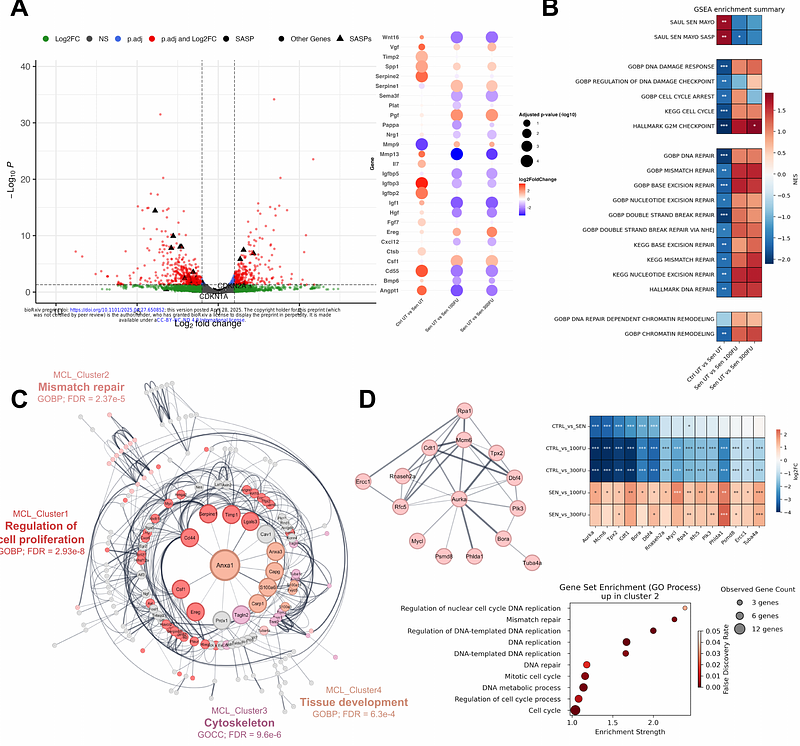Fucoidans are senotherapeutics that enhance SIRT6-dependent DNA repair

Fucoidans are senotherapeutics that enhance SIRT6-dependent DNA repair
Zhang, L. J.; Elsallabi, O.; Soto-Palma, C.; Bartz, J.; Salekeen, R.; Nunes, A.; Xu, W.; Lee, K.; Hughes, B.; Zhang, B.; Mohamed, A.; Mcgowan, S.; Angelini, L.; O'Kelly, R.; Biashad, S. A.; Hillpot, E.; Morandini, F.; Seluanov, A.; Gorbunova, V.; Dong, X.; Niedernhofer, L. J.; Robbins, P. D.
AbstractAging is marked by the accumulation of senescent cells (SnCs), which contribute to tissue dysfunction and age-related diseases. Senotherapeutics, including senolytics which specifically induce lysis of SnCs and senomorphics, which suppress the senescence phenotype, represent promising therapeutic interventions for mitigating age-related pathologies and extending healthspan. Using a phenotypic-based senescent cell screening assay, we identified fucoidans, a class of sulfated polysaccharides derived from brown algae and seaweed, as novel senotherapeutics. In particular, fucoidan from Fucus vesiculosus (Fucoidan-FV) displayed potent senomorphic activity in different types of SnCs, reduced senescence in multiple tissues in aged mice, and extended healthspan in a mouse model of accelerated aging. Fucoidan-FV also enhanced the deacetylation and mono-ADP-ribosylation (mADPr) activity of SIRT6 and improved DNA repair and reduced senescence, in part, through SIRT6-dependent pathways. In addition, Fucoidan-FV downregulated genes associated with inflammation, Wnt signaling, and ECM remodeling pathways in SnCs and increased expression of genes involved with DNA repair. These findings support the translational potential of fucoidans as novel senotherapeutics that also are able to improve SIRT6-mediated DNA repair.